Morgan | 27 | she/her | bisexual |
Last active 60 minutes ago
Don't wanna be here? Send us removal request.
Text
L illegally monitoring Light and violating so many human rights laws all in an effort to have that little japanese twink in his clutches by any means necessary and Light being insanely into it and also so pissed off fantasizing about strangling him with his bare hands. Waiter, more of this flavor please!
207 notes
·
View notes
Text
Anyway Zuko and Aang have always had a lot of queer subtext such as metaphorically turning to face each other while laying down to sleep (two halves of the same bed) that requires a shirtless Zuko to turn his back on his nation's flag + added bonus of Zuko missing a love song because he and Aang were too busy saving each other
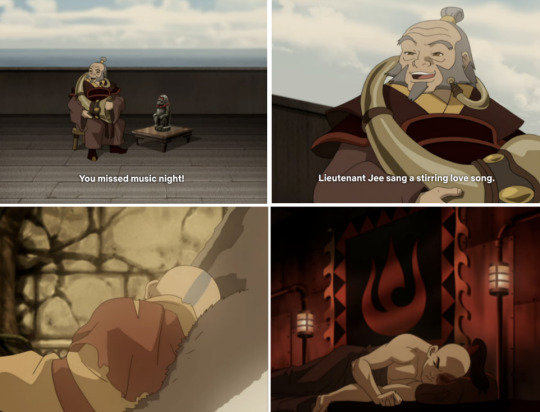
Zuko not denying the relationship allegations but asserting to June that he doesn't want the girl, he wants Aang
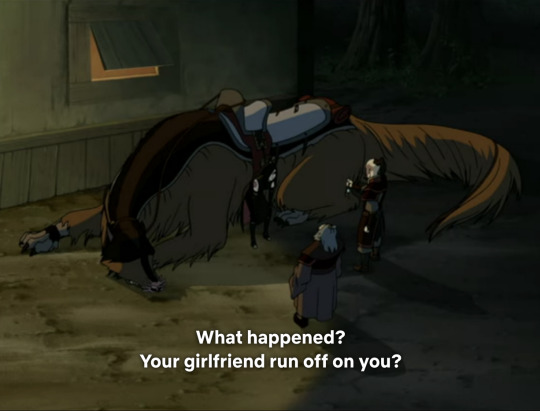
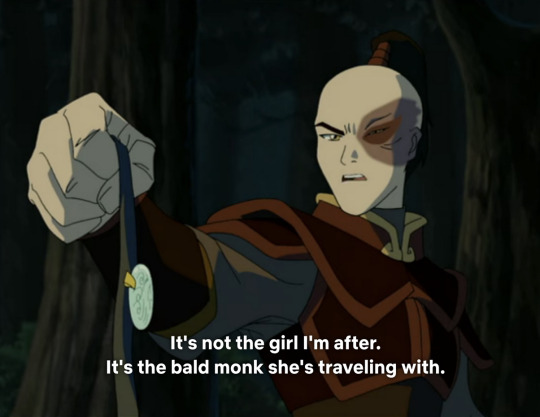
"I want the Avatar" not just his honour + "He's mine". The fact that Aang likewise represents Zuko's hope of going home only provides more layers
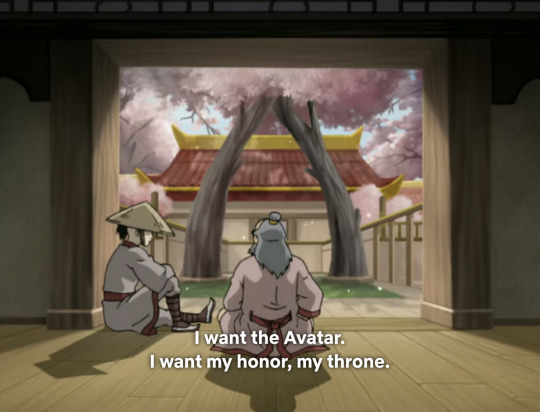
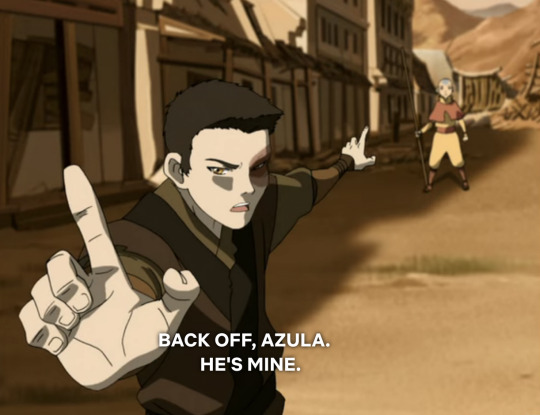
Aang asking girls / Katara and Zuko to dance with him
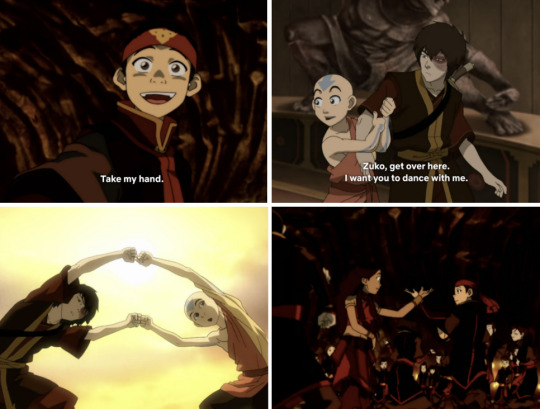
Being ship teased in Ember Island Players
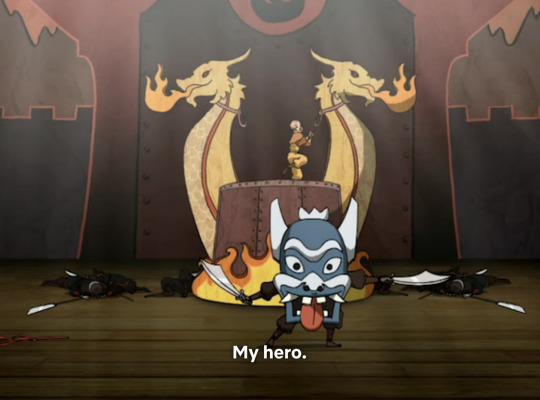
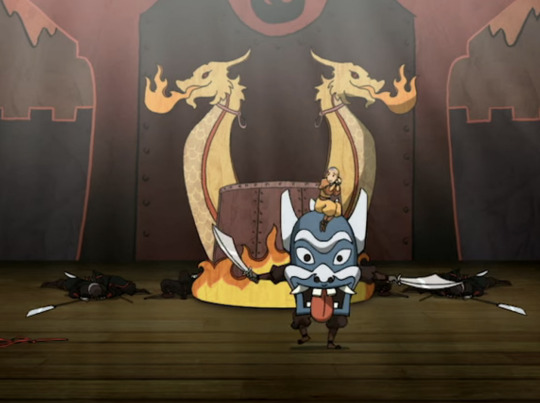
Dreaming about each other (keep in mind that Aang has never seen Zuko shirtless, he's dreaming of him that way Just Because)
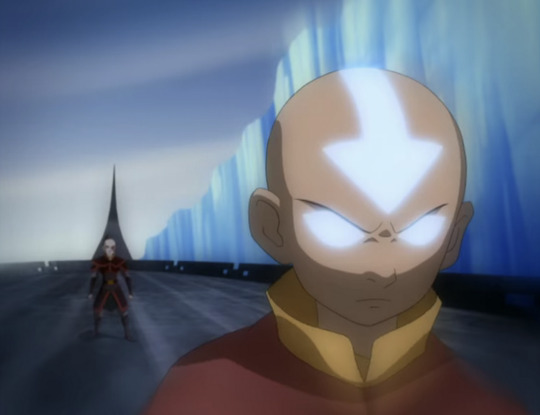
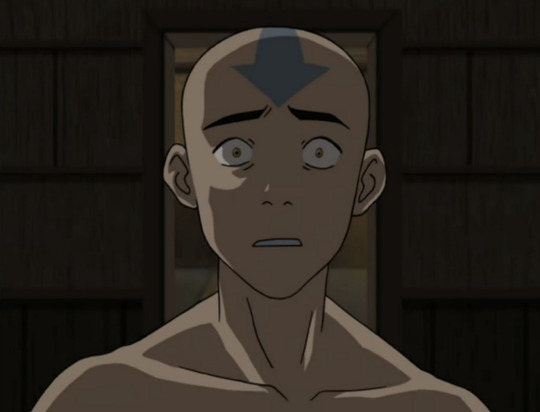
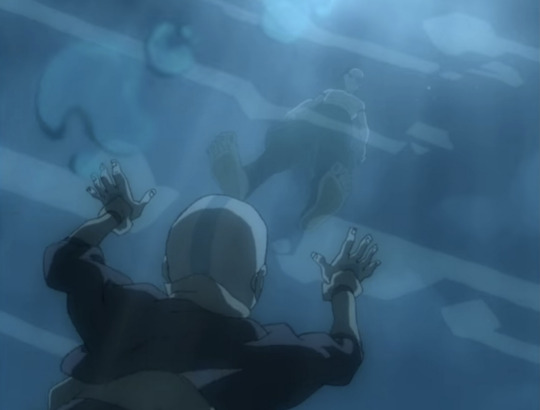
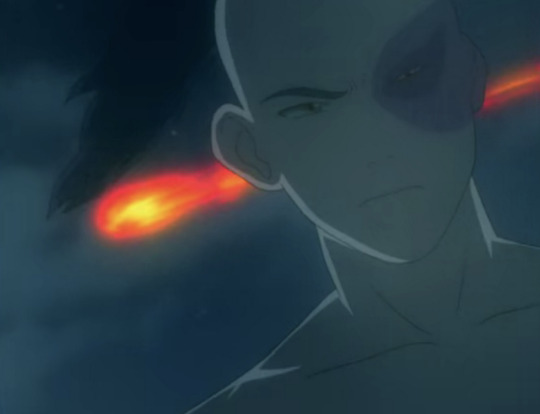
You were my purpose, my drive, and still my destiny ("If you keep an open mind and open heart, I promise you will find your own destiny someday" + "You know I have good in me").
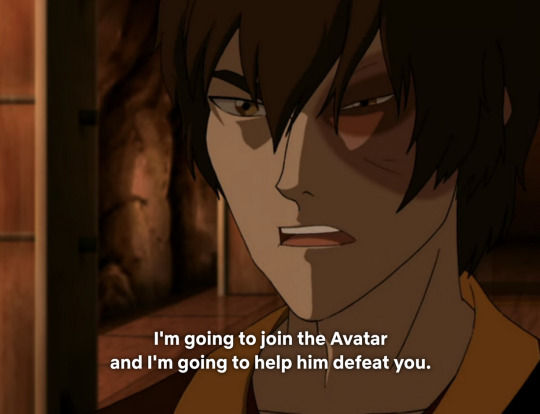
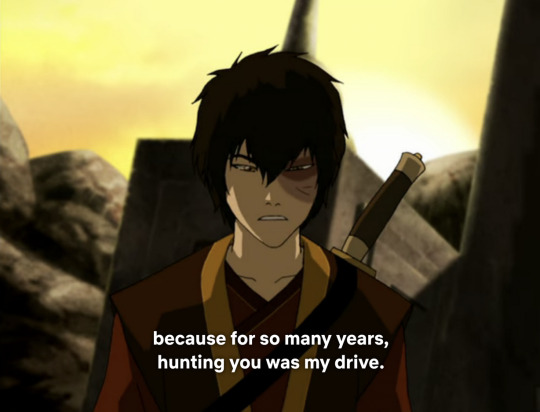
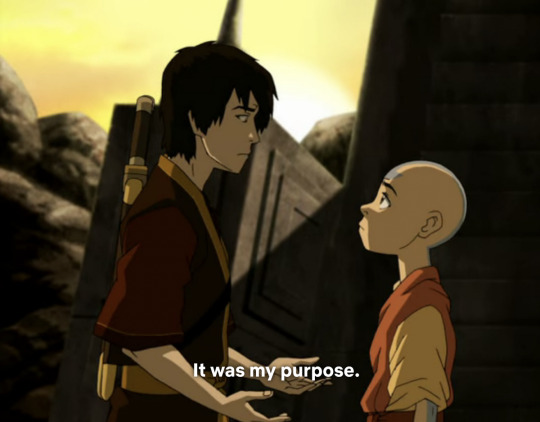
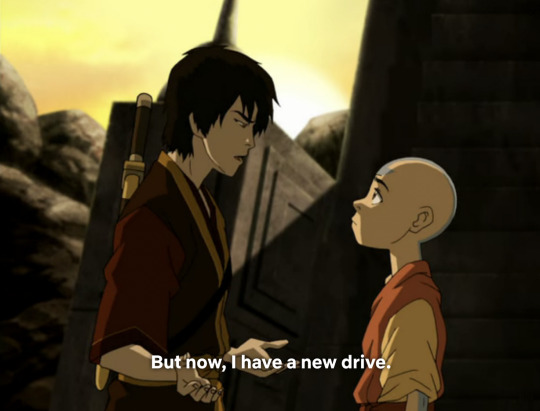
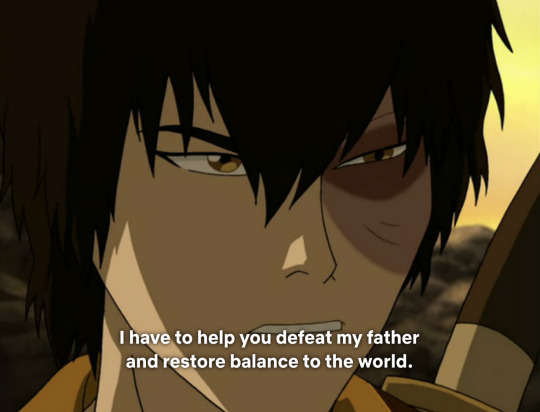
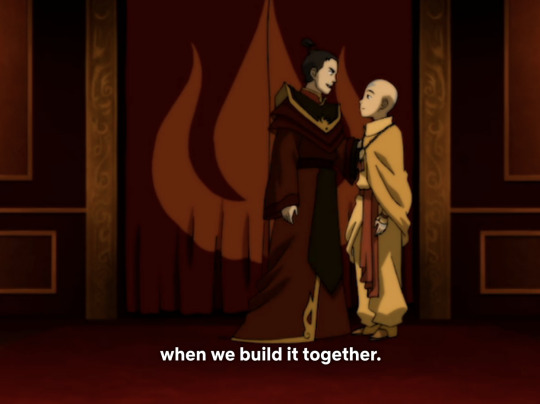
Learning from the original bending masters together, being enemies separated by time and war, standing in a whirlwind of rainbow fire together, and building a city together. like Okay
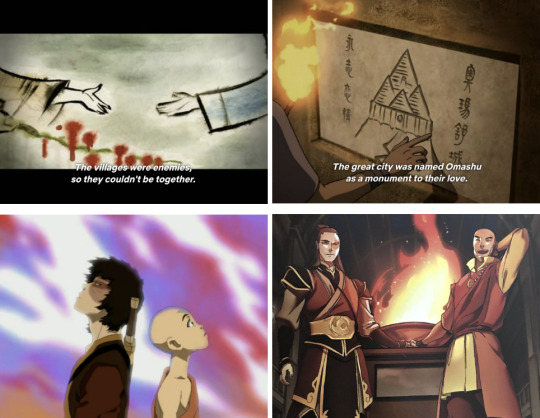
and we all know the Roku/Sozin parallels but how about more Katara/Aang parallels

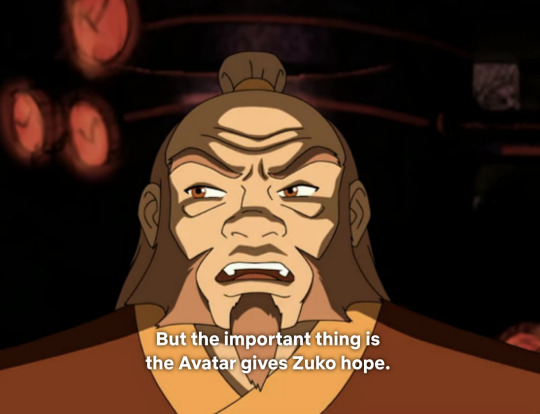
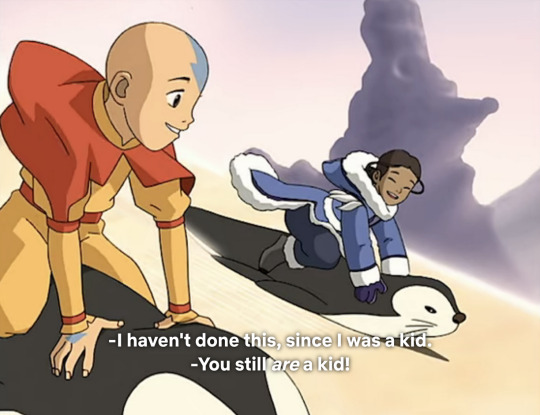
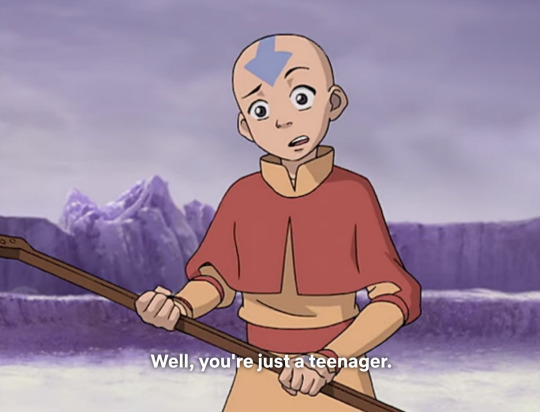
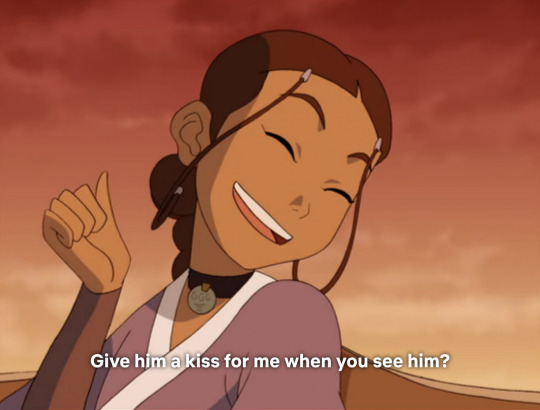
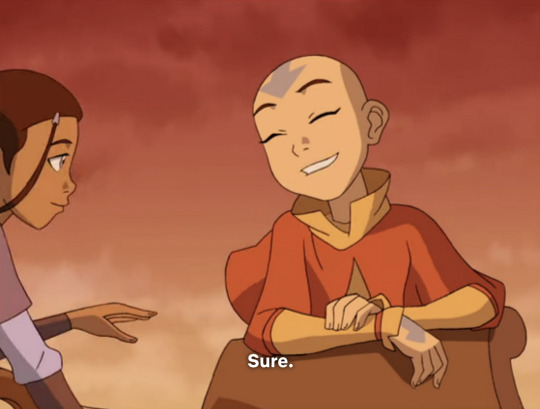
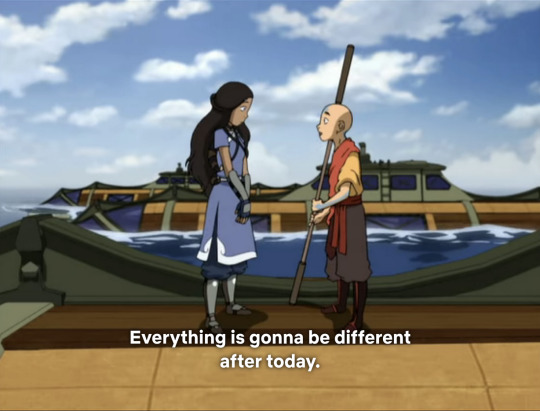
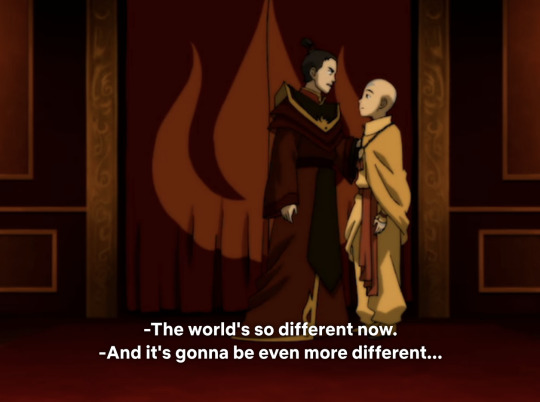
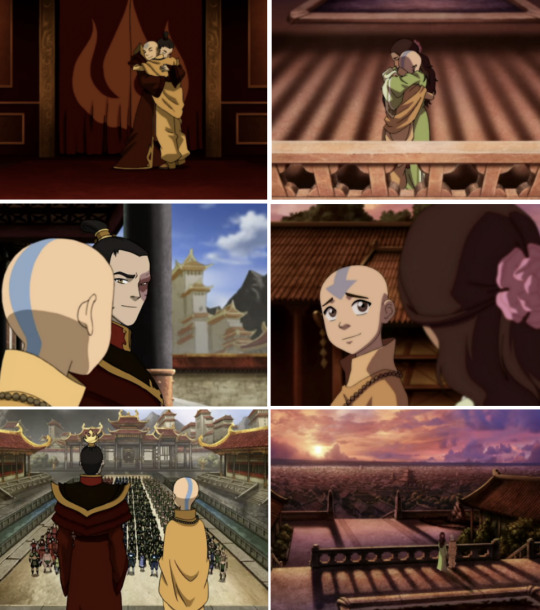
545 notes
·
View notes
Text
5 things u need to understand abt tim drake
dick grayson fanboy
he genuinely does care about people. its not fake or insincere even if hes kinda weird about it. he does really care about people
carguy
goof ass dweeb (whether that makes you feel affection abt him is entirely up to you)
half the time he creates his own issues and its usually real funny but the other half of the time his issues are inflicted upon him in ways that are irreversible and beyond his control
264 notes
·
View notes
Text
fill your body with cranberries so the horse that kills you gets a sensual surprise when he begins to feed
210K notes
·
View notes
Text
watching death note with my family and after the college entrance episode my mom asked offhandedly if anyone had ever pictured L and light as a couple before. it felt like one single white dove had landed on a crystalline lake in a beautiful pure clearing. no i dont think anyones ever thought of that before
84K notes
·
View notes
Note
Thank you to my darling friend for wording this eloquently while I��m trying not to cry at work 🩷
www.tumblr.com/the-badger-mole/792272659109003264/so-apparently-were-bringing-doxing-back
As much as I don’t like the Zuko x Katara, can we agree that this isn’t okay? I don’t want doxxing of real names and addresses of any Zutara shippers. I just want Kataang antis to not send anon hate to people like Duke.
I don’t know anything about this but yeah doxxing and bullying people over fictional ships is dumb. I hate zutara so I don’t go to zutara blogs.
20 notes
·
View notes
Note
www.tumblr.com/the-badger-mole/792272659109003264/so-apparently-were-bringing-doxing-back
As much as I don’t like the Zuko x Katara, can we agree that this isn’t okay? I don’t want doxxing of real names and addresses of any Zutara shippers. I just want Kataang antis to not send anon hate to people like Duke.
I don’t know anything about this but yeah doxxing and bullying people over fictional ships is dumb. I hate zutara so I don’t go to zutara blogs.
20 notes
·
View notes
Text

clark he’s trying to baby trap you oh my god clark
257 notes
·
View notes
Note
I hate this push in the fandom to erase the fact that Katara is canonically an angry person. She’s kind and empathetic, of course, but she also has a lot of very valid rage inside her. Forgiving Zuko and the Fire Nation doesn’t come easily to her in the slightest. She suffered through the genocide of her people, watched the Fire Nation systematically destroy her home and culture, and attempt to take over the world. She GETS to be angry!!! God forbid a brown girl experience justified rage towards her oppressors.
That’s the thing, Katara is an incredibly angry person and her temper is actually very similar to Zuko’s. This is another reason I think they would make for a very bad romantic pair. She also straight up says she won’t ever forgive the death of her mother and by extension the genocide of her people, etc. And she shouldn’t have to, it isn’t something she feels is necessary for her own happiness in the end.
But a character like Aang views forgiveness as a necessity to his own emotional well-being. Again, this is a huge aspect that makes the whole zvtara thing very different from zukaang.
Katara is kind and empathetic, but only to a degree lol. She is no where close to as kind and empathetic Aang is, let alone how forgiving he is. I mean, Aang even feels empathy for fucking Sozin of all people.
One of my biggest gripes w the whole zvtara thing is that it has to mischaracterize both Zuko AND Katara to make it even function. Katara would never forgive or be able to put herself into a position to rule over the nation that genocided her people. Also, the overwhelming majority of zvtara content is framed in a way where Katara falls in love w Zuko and then excuses everything he and by extension his nation did to her and her people. The story then becomes using Katara to excuse and brush aside the actual narrative of ATLA in general and to pretend the Fire nation isn’t “that bad” or that the conflict presented in the show is actually “two sided” and the WT is just as bad somehow, despite the very show disproving this over and over and OVER!!!
It takes Katara, forces her into a romance she isn’t even canonically a part, and then uses her love for Zuko to like… make his redemption happen. And i fundamentally disagree with the aspect of romance somehow making Zuko realize “Colonization Bad”
It doesn’t just come across as tone deaf given the subject matter, it greatly diminishes Zuko’s character arc and the fact he realizes the wrongs he has committed and the wrongs of his nation on his OWN!
At the end of the day, Katara is totally justified to hate the FN as much as she wants. I can’t stand the fandom trying to erase this aspect of her character
24 notes
·
View notes
Note
thank you SOOOOO much for your aang meta because the way this fandom doesn’t understand its own main character is insane to me. whenever people are like “oh the end of the show was ruined bc aang should’ve had to kill ozai” i’m like no!!!! you don’t understand aang and you don’t understand the core message of this show!!!
No literally, the hatred and vitriol thrown at Aang as a character by this fandom is not just baffling but honestly kind of disturbing to me given the context of the show and the real history and cultures that inspired it.
Everyone knows the Air Nomads were inspired by Tibetan Buddhist monks, and by extension the Air Nomad Genocide takes from the real cultural genocide of Tibetans at the hands of China of which over 1.2 million have been killed. This is still an ongoing thing and has been happening since at least the 1950’s. Given this context, and even real life history aside, given the subject matter of the story and plot you would think the people who engage with this show would… idk… show more self awareness? But clearly not.
Allow me to go into a little meta for a moment because Aang is truly one of my favorite characters in media ever, so hopefully I don’t bore you lol because I would talk about him for hours.
A lot of people really overlook Aang as a character or like… forget he exists, almost. It’s very bizarre to me considering as you mentioned, he is the main character but the title of the show is also named after him and his people’s genocide. So, we can infer that this event is what everything and every other character will revolve around, and it does. I’ve even seen people argue that Aang has either 1) no character arc or development and/or 2) that the show doesn’t take the time to depict the genocide enough for audiences to care. Both statements are false, so allow me to show why:
We start the show off with following Aang from when he wakes up from his hundred year slumber. I could already state obvious subtext of the iceberg and what this means for his character in the context of the story, and I will, but let’s move along first. The first couple of episodes are spent establishing our Sokka, Katara and Aang dynamic and building relationships between them, because the third episode delves into the genocide the show is titled after. We along with Katara and Sokka follow Aang to his home, which we see visually as being in ruins what with the overgrown foliage and lack of care to the grounds, not to mention its seeming vacancy. There is a building tension the entire episode, and it allows itself to simmer in it, (unlike Netflix’s terrible adaptation), which makes Aang discovering Gyatso’s skeleton all the more impactful when it finally comes.

We see Gyatso is wearing the same threngwa (Buddhist prayer beads) he had in flashbacks letting us know it is his body. Aang too recognized this. These necklaces, in real life, are used to repeat prayers/mantras. Real threngwas largest bead is known as the guru bead, which speaks to the relationship between the student and spiritual teacher, represented in the air symbol Gyatso wears. We see this come back around in Aang’s final shot alone at the very end of the show so it is no coincidence. It is also a deliberate parallel that Katara and Aang share (her mother’s necklace), as they have many in the show and constantly circle one another as characters.
Aang has learned at this moment that he isn’t just a victim of genocide, he is the sole survivor. Not even in real life is there documented genocide on the scale Aang would be experiencing in show. It’s simply an unimaginable level of loss, and for people to assert it is anything but that is not only completely tone deaf given the subject matter of the story, but it’s also just genuinely fucked up. Excuse my language. Because Aang might be a fictional character, and the Air Nomads might be fictional as well, but the culture inspiring them and what happens to them is not. And many people that love ATLA are from cultures that have experienced genocide. For this reason, I truly believe Aang is one of the most important characters in western media, especially in children’s television.
We see the genocide of Aang’s people echo throughout the narrative going forward. Aang comes across people in one of the temples that are refugees, in the midst of destroying sacred sites that only he can understand and remember the cultural importance of because he is the only one left. At the same time, he shows empathy toward these people, who have no where to go and are like him and his new friends, victims of an evil regime. Aang realizes that no, they aren’t part of his culture, and they might not know everything he does, but they do embody what his people valued: freedom. And in that way, the spirit of them lives just as the refugees. It might not be the same, but that doesn’t mean it doesn’t have value. I also greatly appreciate ATLA depicting the nuances of war in this way. It is very unusual for a form of media that focuses on this topic to actually devote time to aspects of war that are not black and white.
We also see Aang find a bison whistle, and I think this must have been such a precious token for him to uncover. And while Sokka doesn’t believe it will work, that it’s a waste of money, the show disproves him in the end. He must’ve thought it was so nice that someone cared enough about his culture to make such a thing.
We then learn in The Storm that Aang ran away from his home. This is where the show starts to more deeply delve into his survivor’s guilt, which was mostly alluded to beforehand but never outright stated in this way. Aang divulges to Katara that the council members at his temple were going to forcibly separate him and Gyatso, his father, and in Aang’s words: “How could they do that to me? They wanted to take away everyone I knew and everyone I loved!”
We as the audience know that Gyatso was going to fight the other council members to keep Aang, but Aang will never know this. This episode, and this event that leads to Aang running away, is the core of his character arc for the entire series.
It is not that Aang runs away or has a problem with running away, as so many fail to understand, but rather that expecting Aang to sever all attachments for the sake of the world leads to his own people’s doom and will only cause destruction in the end. Aang’s elders wanted to take him from his father’s care and ship him away to be isolated and rigorously trained, for their benefit. Gyatso of course argued against this, because this was cruel and not something any other airbender was expected to do—to give up all attachments to other people and to what is familiar to them, to sacrifice everything for the world.
This sacrificial theme pops up repeatedly for Aang, and as I’ve said plenty of times, he is never narratively rewarded for such a thing.

When Appa is stolen, and his last remnant of his obliterated culture is taken away, it is Katara who is able to reach through his grief and rage. Katara, like Aang, largely understands how he must feel given her own people’s genocide. She also takes a stand against Aang trying to force the Avatar State upon himself, something deeply traumatic for him, for the sake of ending a war.
“For the people who love you, watching you be in that much rage and pain is really scary.”
Aang has a really beautifully done aspect of his arc concerning the Avatar State and Katara, as the two are inherently tied together. In Book 2, we see this sacrificial theme grow stronger when Aang is asked to choose unlimited power over attachment and love. This is the exact same thing that caused him to flee his home. It makes sense it is echoed now in Katara, given we are told that his love for his people is reborn in his love for her. (Also not part of this meta but I really like the parallel in the comics with how Aang calls her sweetie and we specifically hear Kya call her this in flashbacks. It’s yet another parallel about the loss of what Katara and Aang loved being found again in and through one another.)

We are told in The Guru that Aang’s heart chakra deals with love and is blocked by his grief. We then visually see the airbenders being tied to Katara. We also get a green color scheme, the color of the heart chakra, otherwise known as the Air chakra.
Aang can’t let Katara go. His love for her is too great. It is only in the catacombs that he is not given a choice. He is forced to give her up for the sake of the battle at hand. If he doesn’t give her up, if he doesn’t enter the Avatar State, this guarantees she will die.
And then the narrative subverts what we would expect by punishing him for this.

Typically, especially in western media, we would be told to view a character gaining unlimited power as a good thing. This is not the case in ATLA. This plot point is framed as a complete tragedy. It’s truly one of the saddest, most hopeless moments of the entire show. This visual of Katara holding Aang’s corpse in her arms is so charged. Holding the world’s Avatar, the world’s Last Airbender as he dies. As her physical embodiment of hope dies. As a part of her spirit goes with him. It’s so incredibly sad.
This sacrifice is not met with reward. It’s met with anguish. Katara returns Aang’s feelings through her actions. We don’t need words to be spoken to understand what is being conveyed: she can’t give him up, either. She nearly drowns everyone in the catacombs just to catch him before he can hit the ground. She heals him, resurrects him from the dead, summons his Avatar spirit, instills in him and raises him up with new life just as she did from the iceberg.
This is why kataang is absolutely fucking peak, but that’s another convo for another meta. But I can’t help mentioning it seeing as they are so integral to one another, and their romance is so deeply woven into the narrative, and to the themes at hand.
We continue to see Aang try to give her up again in The Awakening. Katara doesn’t allow him to do this successfully, for good reason of course, as we are being told visually and thematically that Aang shouldn’t have to sacrifice for the world. He burns what is left of his glider, his old clothes torn and ruined, and Katara again parallels him by removing her mother’s necklace. Both characters assimilate into the nation that tried to eradicate them. They continue to mirror one another in Book 3 very heavily.

We also have this visual symbol of Aang’s sacrifice. It is literally a blistering, open wound on his air chakra that Katara tries for over a month canonically to heal. (Also her water is making a heart. Cute) This wound is cutting off his chi path, where his tattoos follow along his body, breaking the order of his tattoos and spine. Katara does heal him. She does bring him back to life, back to the world, but even she cannot erase the damage done to Aang’s body and soul, not entirely and this is both physically and figuratively.
She says she can feel “a lot of energy twisted up in there”, and that’s really speaking to the fact that Aang… hasn’t dealt with the loss of his people. He hasn’t finished his arc. Which leads me to my next point:
During the first installment of the 4 part finale, we see this argument of taking a life brought up again. We already have known that Aang is a pacifist throughout the show. We also were visually shown Gyatso surrounded by dead firebenders in episode 3. We can infer something very crucial about that imagery: Gyatso killed them all and himself, seeing as he had no charring on his clothes etc. He likely suffocated them all, and himself, to stop their assault. Regardless of how he killed them, we know that he had to of done so. Which means that Gyatso, and likely the other airbenders (at least some of them) probably resorted to lethal methods during Sozin’s ambush.
This is not framed in a good light. We know pacifism is sacred to Aang and was to his people. Giving it up is another sacrifice in a narrative rich and full to the brim with them as far as Aang and his people are concerned. The airbenders, and Gyatso, gave up their spirituality to try and save themselves. What did it get them in the end? Nothing. They all still died. Their sacrifice was in vain, as all of them are…
This is crucial to the finale.

Aang is shown to be meditating and specifically to be praying, what with the offerings he makes and are visually being represented here. So what is he praying to? To the universe. He wants another option. That’s what the Lion Turtle is. It is the universe’s answering to his unwavering faith.
The Lion Turtle comes and beckons him. It, seeing his pure spirit, his relentless determination to rectify what was set to wrongs 100 years ago with his people sacrificing their culture in the face of their deaths, sees that Aang is able to perform an ability no other Avatar ever has: energybending.
“The true mind can weather all the lies and illusions without being lost. The true heart can tough the poison of hatred without being harmed. Since beginning-less time, darkness thrives in the void, but always yields to purifying light.”
The chant in this scene is based on a real Buddhist chant. The chant is in Mandarin and translates to “Bow before the Buddha of Immeasurable Light’s Disciple.”
Aang is the Disciple here as opposed to the Buddha (the original real life chant does not say disciple), but by altering it here, and by calling him a disciple it is acknowledging Aang’s humanity and his flaws which led to the imbalance he is experiencing culturally, emotionally, spiritually… In the same breath, it acknowledges his innate goodness as the Avatar and deems him worthy of a power no other Avatar was.
“In the era before the Avatar, we bent not the elements, but the energy within ourselves. To bend another’s energy, your own spirit must be unbendable, or you will be corrupted, and destroyed.”

When Aang fights Ozai, we hear and see Ozai brutalize him both physically and psychologically.
“You’re weak, just like the rest of your people. They did not deserve to exist in this world, in MY world!”
Aang was mistaken when he said his 7th chakra was locked during the Day of Black Sun. It was his Air chakra all along… his grief, his love, his loss.
We see an act of karma play out in this finale. Just as his prayer was answered, his heart is literally penetrated and forced open. A rock is driven through his heart chakra, and he enters the Avatar State for the first time completely conscious and aware of what he is doing. On the 100th anniversary of his people’s genocide, he faces the offspring of the responsible party, and he is so angry.
It is no shock nor coincidence that the first and last element Aang uses in this battle is air.

Aang slapping Ozai’s hand away, a hand about to burn his face like he burned his own son, a hand about to complete the genocide 100 years in the making. And what does he do? He slaps it away, rejecting the imperialism for the final time. He asserts his people’s power through his bending, literally pushing fascism away from himself.
This is truly one of if not my favorite move any character does in the entire show. It is so simple and so, so heavy with subtext. And Aang, about to kill him, finds it within himself to pull back. This isn’t who he is. This isn’t who his people were. They were peaceful and forced to violence. They deserved to exist in this world. And then he energybends. Because his spirit and his love are unbreakable. Because only the last airbender can return what the world lost in war: freedom. Because only the last airbender could ever be the avatar. Because only Aang and his level of unconditional love could ever conquer in the face of evil.

We end the show with this being the final moment we see Aang alone, if only for a short second. I can’t even articulate the emotions this conveys: perseverance, peace, sadness all in one. As he wears the same threngwa of his father, no doubt remembering his love for him, and for the rest of the airbenders. Has he done right by them in the end? Has he finally righted this wrong? Can he rest now, for the first time? Is he free to love again?
Aang is truly such an emotionally charged character to me. Every time I see him right here in this shot I start crying.
There is something so powerful and emotionally resonant in a character honoring their culture in the wake of such devastation, even against the entire world. I’m sure for many fans who have experienced something like this, he is a very impactful character. More so, I think for any fan of ATLA that has ever been oppressed, has ever suffered and forced to slice away parts of themselves for the benefit of other’s comfort, Aang is beloved. A hiding boy, and an iceberg his fortress of protection, and the themes of self determination and survival against all odds.
What a beautiful character and arc. What a wonderful message to send. What a wonderful hero to have been raised by as a child.

139 notes
·
View notes
Note
What do you think about the people who use Aang killing that bug that took Momo as some sort of gotcha moment when he says that he doesn't believe in taking a life? I honestly find that entire argument to be stupid.
I think it’s a bad faith argument from people who fail to comprehend the narrative of ATLA or the real culture that inspired Aang and the air nomads, or the real genocide that inspired it as well.
Mostly this argument comes from people who view the culture and religion Aang speaks of as childish notions. Aang was quite literally pushed to his limits in The Desert. He has just had his lifelong companion, the last remnant of his old life and deceased people and obliterated culture stolen from him. Appa isn’t his pet, he and Aang are spiritually bound for life. He has no idea where Appa is, if he’s alive or being brutalized, or if he will ever see him again.
This understandably is incredibly triggering to Aang’s trauma that he is often ignoring or pushing to the side for the sake of the world and everyone else in the group. Aang hasn’t even been allowed to truly process the unimaginable grief he’s grappling with. He doesn’t have time. There are more important things he has to deal with in his view.
So, when they’re all stranded in the desert with no hope of getting out, Aang really gets to sit with it. And when Momo too gets stolen away, Aang lashes out and kills a living being on screen. He is the only character in the group we ever see actually kill something. He is clearly not himself, and is completely consumed with rage that is simmering just under the surface. And when he encounters the sandbenders responsible for Appa’s abduction, he snaps. It’s very strongly implied that Aang would have killed them all had Katara not calmed him down. It’s why he shuts down so completely after that episode. It’s also why he tries so hard to reason with Katara later in The Southern Raiders.
“How do you think I felt about the sandbenders that stole Appa? How do you think I felt about the Fire Nation when I found out what happened to my people?”
That is canon confirmation that Aang did want to kill not just the sandbenders but to also unleash hell on the nation responsible for his people’s genocide.
It’s not like Aang is a perfect person. He has to make a conscious effort not to do these things the entire show, and we constantly see him crack over and over until the very last episode.
It’s important to Aang that he honor his people’s teachings. He is the sole survivor of their genocide and if he disregards it, it will be lost forever. Their genocide will be complete, through him. Not physically, but spiritually.
In that final fight with Ozai, Aang is completely aware of himself in the avatar state. He knows exactly what he is doing and he’s also definitely trying to kill Ozai for the majority of it. And he was going to do it. But on the 100th year anniversary of his people’s deaths, he finds it in himself to stop, to pause and to pull back, despite how full of grief and rage he is. All of the elements fall away and all he’s left with is air as he comes back to the ground. It is the last bittersweet stand of the air nomads. Who didn’t deserve their slaughter. Who did deserve to exist in the world, despite what Ozai said. Aang won’t allow Ozai to be proven right.
He plants his feet and says “NO! You move!” to a world that did nothing but push and push him the entire story, demanding he sacrifice everything for it.
He demands another outcome. He prays for it, and the universe answers him in kind, driving a rock through his heart chakra, through his grief that has blocked him the entire show, offering him the path to peace which he takes. It’s karmic. It’s a beautiful, emotional and incredibly bittersweet ending to his character arc.
People that don’t understand this, and that don’t understand Aang, will never understand ATLA.
114 notes
·
View notes
Text
Thinking about how Aang is punished for choosing power over love and his own happiness, punished for sacrificing another part of himself for the world… shot in the back and straight through his heart, his Air chakra, by lightning. His Air chakra, which deals with love and is blocked by his grief. His grief over losing his entire nation, his culture, everyone he has ever known and loved. And how the battle he fights with Katara here, they are surrounded by green crystals, the color of the Air chakra.
Aang makes the wrong choice, he too comes to a crossroads in his destiny just like Zuko—they both choose wrong. He goes against Aunt Wu’s advice, that he should follow his heart and shape his own destiny. He blocks off his own heart because he thinks it’s the only way he can save the world, to literally tear himself apart. And how his entire character arc is about him trying to mend his grief, to allow himself to still feel love, even in the wake of such devastation. And how it is Katara who saves him, because she loves him, because love never leaves, it’s simply reborn.
Many thoughts head full.
1K notes
·
View notes
Text
I love AANG !!!! *my telekinesis throws everything around in the room and when the dust settles it settles into the shape of his face*
22 notes
·
View notes
Text
many batman fans seem to think tim is a bad fighter or that he is inherently worse at fighting or other physical aspects of vigilantism than all the other bats. that's not true. he just gets his ass beaten so often because he's annoying as hell
#tim drake#tim is a fantastic fighter but he’s also the best ragebaiter in the world#and unfortunately he’d always rather ragebait than win a fight
572 notes
·
View notes


